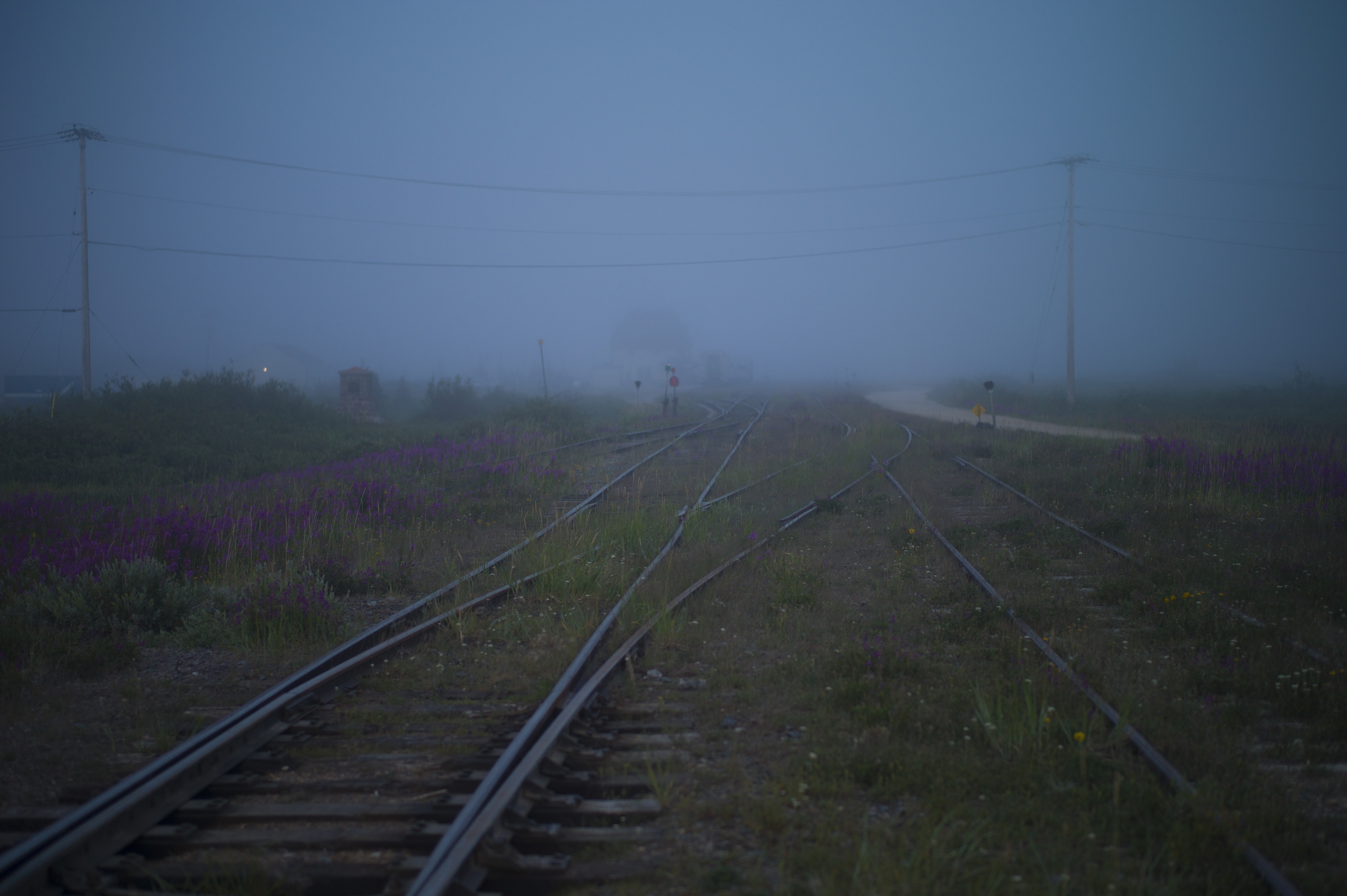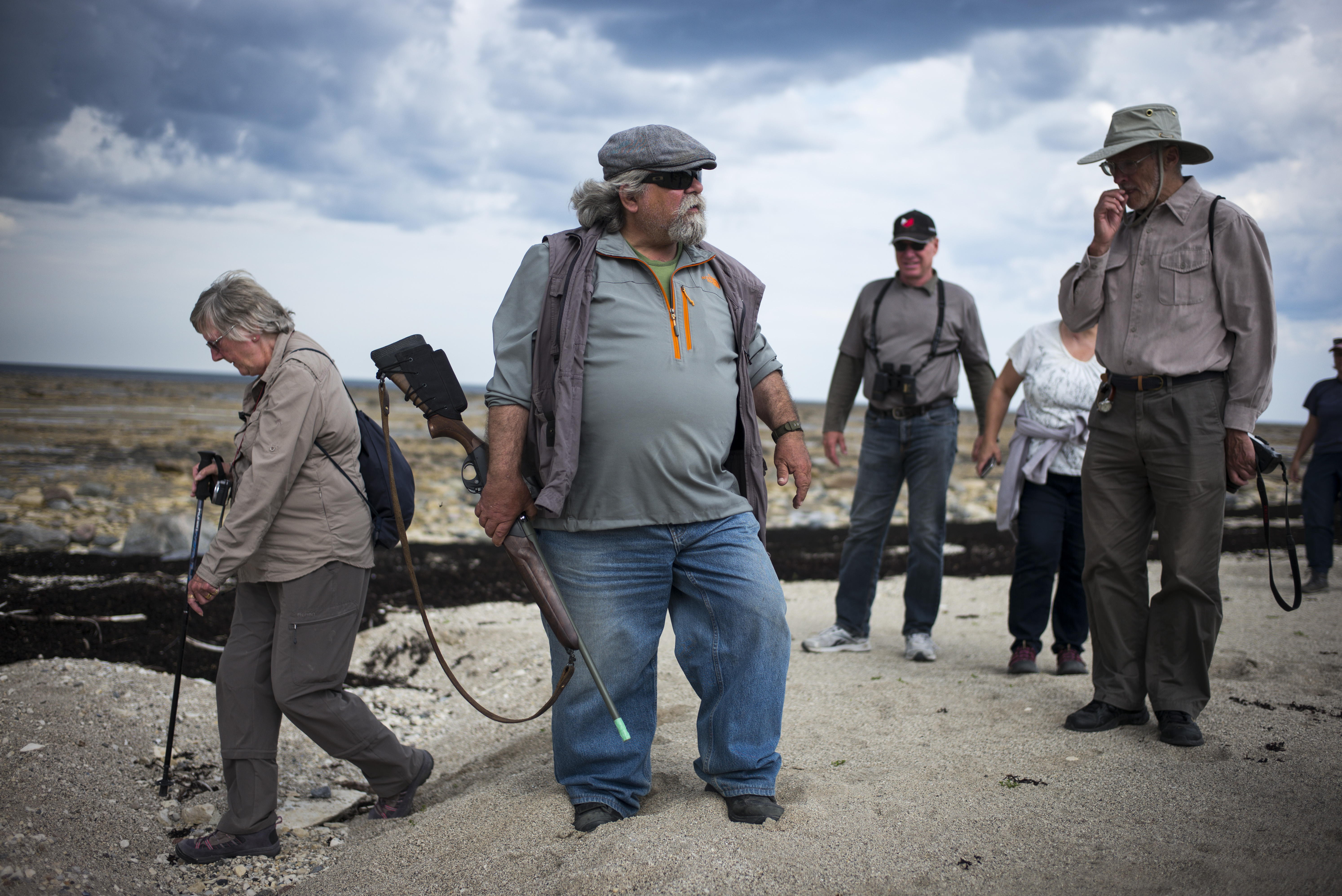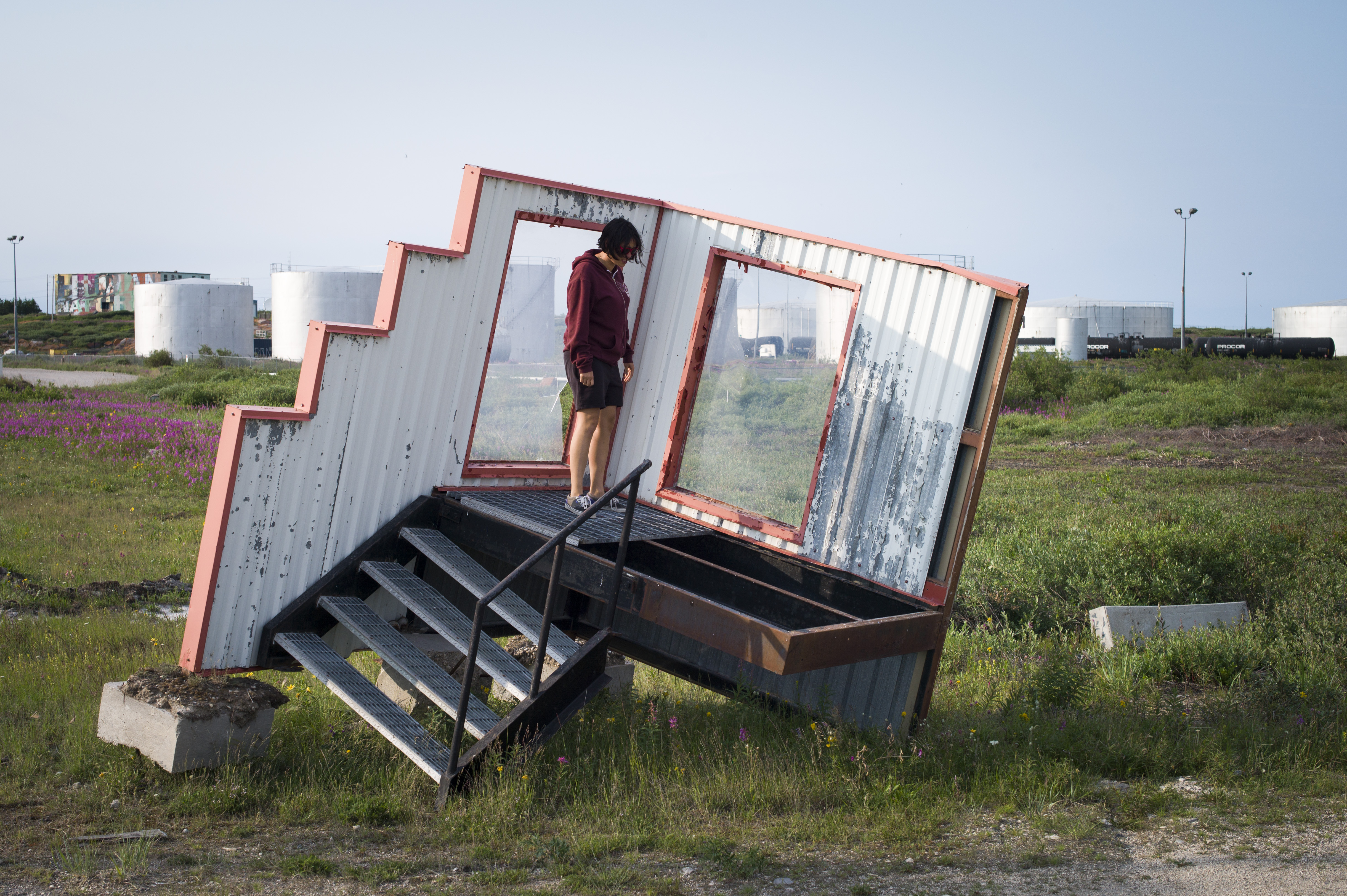What a rail link — and its loss — has meant to Churchill, Manitoba
CHURCHILL, Manitoba — The last train to Churchill sits beside the town’s antique station, settling into place week after week.
It arrived May 23, the morning when floods washed out the track connecting this frontier town in northern Manitoba on the edge of Hudson Bay — and it has not moved since.
Once a symbol of expansion and hope, the passenger train has become a painful emblem of lost jobs, empty hotel rooms and mounting hunger for the town’s residents, and a bellwether of climate change for scientists.
Notoriously high to begin with, the price of groceries in Churchill has skyrocketed as supplies now arrive by plane. Even with emergency government subsidies in place, a 4-liter jug of milk that once cost 6.19 Canadian dollars (US$4.90) now rings in at CA$10.89. Two small bags of produce, containing just fruit, snap peas and beans, cost CA$82.99.
The town’s emergency food bank says that demand is up, including among many low-income people who would otherwise take the overnight train to a nearby town a few times a year for cheaper meat and supplies.
“How can I survive? I can’t feed my kids,” said Molly Meeko, 34, a single mother of six who has taken a second, part-time cleaning job since the train stopped running. By her accounting, each of those overnight grocery runs saved her on average CA$4,000. “Relying on that train — now that it’s not running — what am I going to do?”
Churchill’s current problems can be traced to a three-day blizzard that pummeled the area in March, burying houses and prompting the town of 900 people to announce a state of emergency. A second blizzard followed, and then, in May, with all of that snow melting, the rivers in the area swelled to their highest levels since records began being kept in the 1970s.
The train tracks running over muskeg and the frozen soil of the boreal forest to Churchill from the nearest town to the south, Gillam, 179 miles away, were washed out in 19 places, according to their U.S. corporate owner. Bridges were damaged and culverts destroyed.
“It’s an example of how ill-prepared we are to address climate change and these extreme events,” David Barber, the Canada research chair in Arctic system science at the University of Manitoba, said of the storms and floods, which climate scientists say fit predictions of more extreme weather as the Earth’s climate warms. “We can expect more of this — one-in-100-year flood events.”
Churchill claims a mythic place in the Canadian psyche, for what is a modest, dusty town. Set in the finger between the mouth of the Churchill River and the rocky shores of Hudson Bay, there is one scrubby main street that leads to the port’s ghostly grain elevators, a concrete mall that houses the town’s hospital, school, bowling alley and gym, and a handful of basic hotels serving tourists who come for polar bears in the fall and beluga whales in the summer.
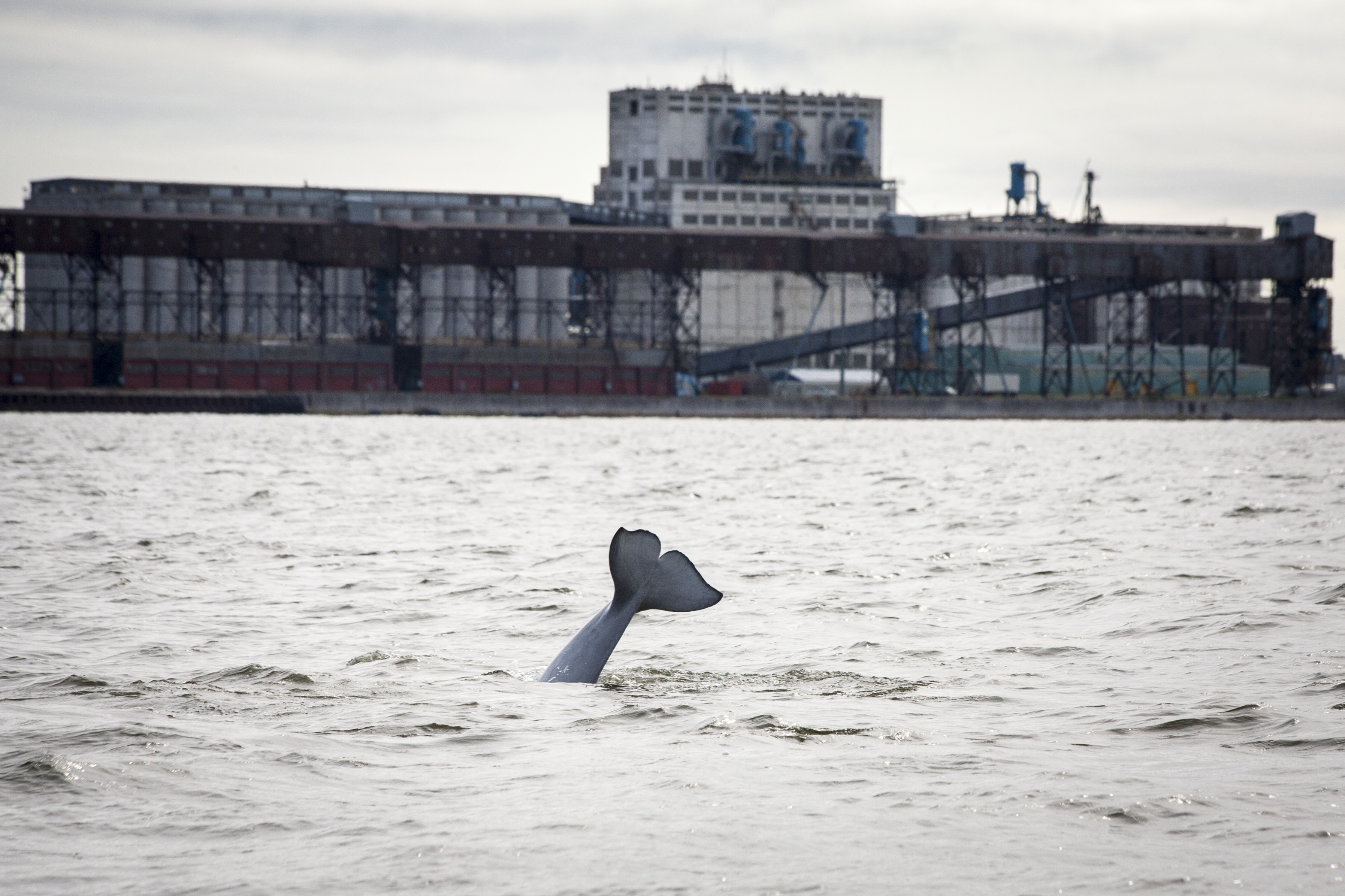
Originally settled as a trading post by the Hudson Bay Co., the town was reconfigured around the train station, which opened in 1929, connecting Churchill to Winnipeg, the provincial capital, 1,056 miles to the south. The country’s only deepwater Arctic port was completed around the same time, so the wheat sent from Canadian farms by rail could be shipped to European markets.
In 1997, when the federal government brokered a sale of the port and most of the railway to OmniTRAX, a private company based in Denver, the company predicted that climate change would increase the port’s business as more ships used Arctic routes.
That did not happen.
In 2016, the company laid off most port employees at the start of the 14-week summer shipping season, after the government disbanded the national wheat monopoly and grain companies sent their product to other ports. The company had been in serious talks to sell the rail line when the flooding occurred.
Now, company officials say they cannot justify fixing the money-losing rail line, particularly in a warming climate. With the cost of repairs estimated at CA$20 million to CA$60 million, the company declared a “force majeure” — an unforeseen event beyond the company’s responsibility.
“To fix things in this era of climate change, well, it’s fixed but you don’t count on it being the fix forever,” Ron Mitchell, a railway engineer hired by the company to assess the damage, said at a media briefing in July. “Things are changing that we can’t arrest or change or govern.”
Prime Minister Justin Trudeau has said that the company is legally required to fix the tracks and that his government is “looking at all options to ensure contracts and obligations are respected and fulfilled.”
As the stalemate draws on, Churchillians suffer. They have missed out on what Mayor Mike Spence had expected to be the town’s best summer tourist season because of discounted rail passes celebrating Canada’s 150th birthday. Hotels and tour companies have had cancellations, with the price of travel now out of reach for many visitors: Plane tickets from Winnipeg to Churchill can cost as much as CA$2,250 round trip.
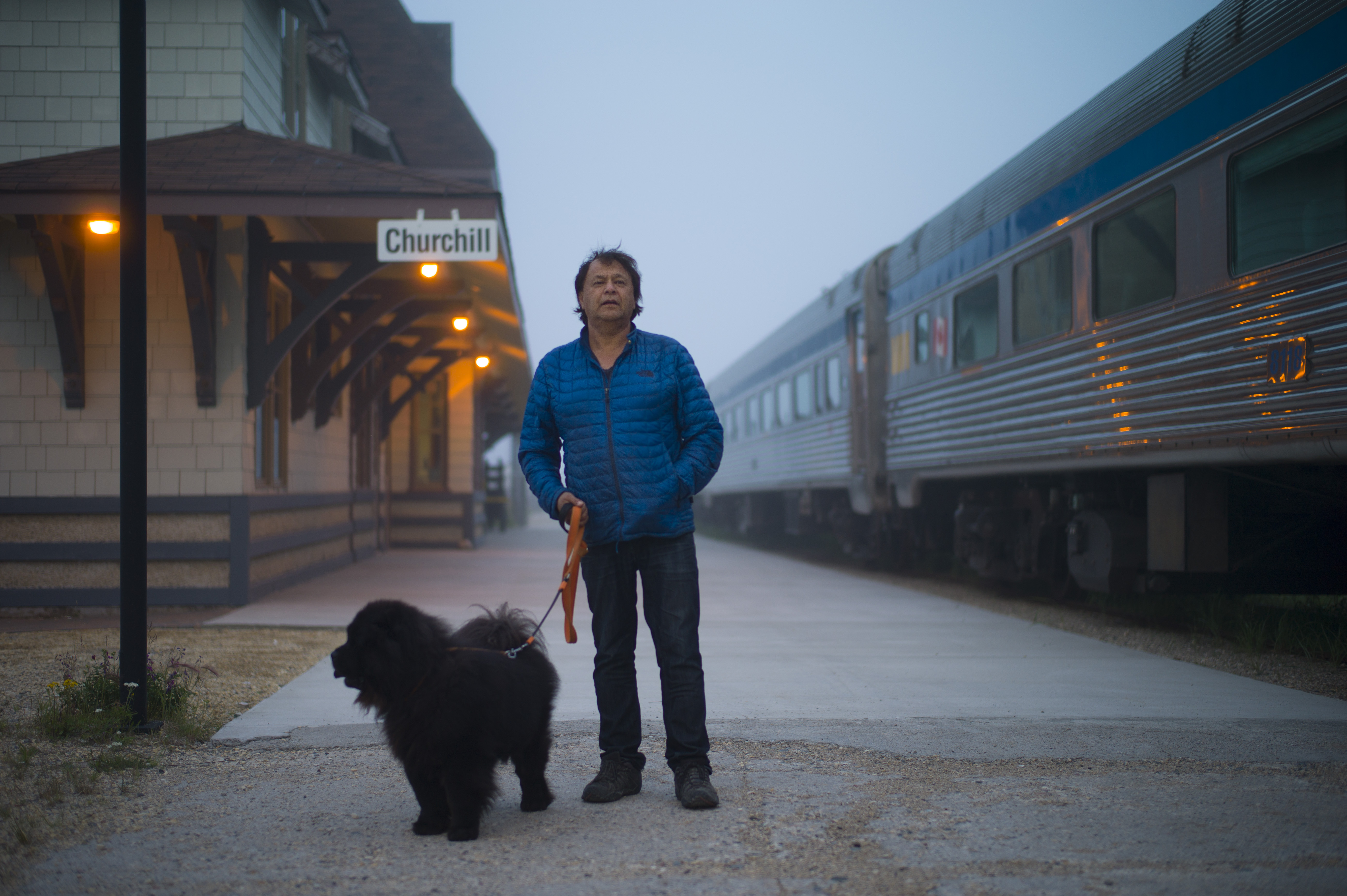
But the train brought more than tourists. It also supplied just about everything in the town, including lumber and cars.
The hardware store, no longer able to fill construction orders for northern towns, laid off more than half of its dozen regular employees. Transporting windows and siding by air costs five times as much as by train.
“We do 50 percent of our business in the summer,” said Rhoda de Meulles, who owns the hardware store with her husband, Dale. “We’re scared.”
The couple worry how they will feed their two Icelandic horses, Yukki and Pearla. To ration their precious remaining hay, they have taken to hauling an electric fence around to their neighbors’ yards and grazing them there. Accepting that the rail line will not be fixed before winter, they dipped into their retirement savings and ordered bales by barge from Montreal at a cost of CA$22,000.
“Everyone in this town feels held hostage,” said Rhoda de Meulles, 54.
Dave Daley, a local entrepreneur and head of the Churchill Chamber of Commerce, who started the area’s 220-mile dog sled race 13 years ago, faces a similar problem with his animals.
“Should I put down all my old dogs?” he said, looking out at his yard of 39 lounging and yelping northern huskies.
Since the train tracks were washed out, the price of hauling his high-performance kibble here from a supplier in New Brunswick has doubled — from CA$52 a bag, which lasts at most two days, to CA$111.
“It’s not fair to them,” said Daley, 54, answering his own question. “They’re part of our family here.”
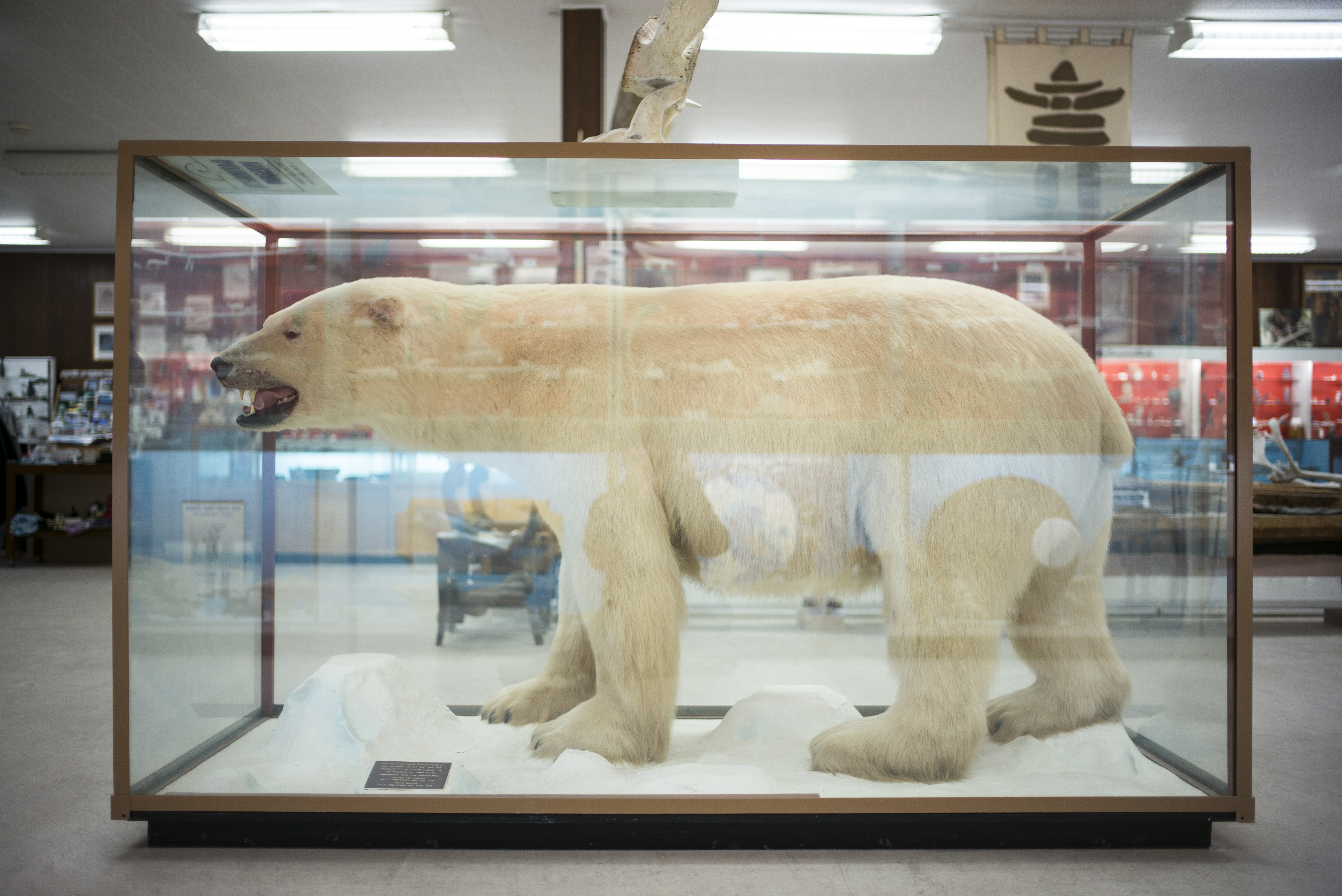
The effects of climate change were previously a boon for Churchill: Its status as one of few places near the Arctic Circle accessible by train, and its location at the juncture of boreal forest and Arctic tundra, had established the town as a nexus for climate change research.
Since 1976, scientists have come to the Churchill Northern Studies Centre to study topics like thawing permafrost and the slow expansion of heat-tolerant larch trees into the area. Construction on a second science center, where researchers planned to study the effect of oil spills on sea ice, began this spring — until the train stopped running. The center’s very premise was the dramatic effect of climate change on Hudson Bay.
The town’s frozen climate has already warmed. And climatologists predict that the number of very cold days, when the temperature dips below minus-22 degrees Fahrenheit, will halve over the next 30 years — from 44.2 now to 22.6 — even with significant cuts to global carbon emission rates.
“Churchill’s defining characteristic is its cold,” said Danny Blair, the director of science for the Prairie Climate Centre in Winnipeg. “And it’s losing that rapidly.”
Still, Churchillians are loath to blame climate change for their problems. Instead, most point a damning finger at the privatization of what was once a public utility.
“This is a form of abandonment,” said Spence, the mayor, who owns three local businesses and was part of a group that was putting together a bid to buy the rail line before the flood.
“Don’t give up on us,” Spence said. “Just because we have a storm, that doesn’t mean that’s it.”
